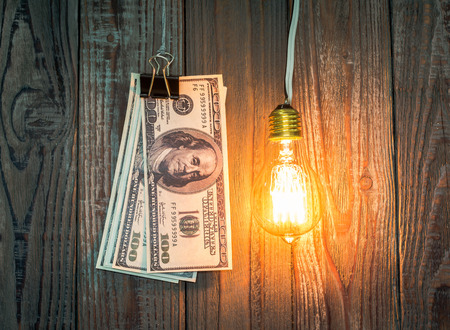Let’s be real: creating a personal budget is a total grind. Going through bank statements, tallying numbers, and owning up to how much you actually spend at Starbucks is not what most people consider a fun activity. And many times during the process, we lose track of why having a budget even matters!
Despite the headache, we know that keeping a personal budget is essential for financial success. In this post, I’ll breakdown the real purpose of creating a personal budget, and how not to get discouraged along the way.
One of the first things I do with new clients is talk to them about their personal budgets. It’s the foundation of any financial plan. And sometimes, the best way to figure out the real purpose of something is to identify what it’s not.
First and foremost, a personal budget is not:
- A way to shame yourself or partner over your/their spending habits.
- A way to change your life and spending habits immediately.
A personal budget is:
- A way to build awareness of your financial situation.
- A way to identify how your daily living habits inhibit or promote your longer term goals and aspirations.
Another way to look at it is by asking yourself: are you working for or against yourself?
What do I mean by that exactly? Here’s an example to illustrate:
Let’s say you or you and a partner bring home $10,000 a month. According to your personal budget, you find your monthly spending average is $8,000. We’ll assume that you’re not restricting your lifestyle, and living how you want to live.
Because of your personal budget, you suddenly see that you have $2,000 free each month. Maybe you knew this already or maybe you didn’t and instead just spent the extra money each month. But now that you know that number, you can have specific purpose with that money. Carl Richards, a popular New York Times columnist and certified financial planner, talks about this when discussing the benefits of aligning your personal budget with your values.
Let me elaborate. Maybe you want to eliminate some old student loan debt each month, save towards a home or go on a really amazing vacation. With a solid monthly number, you’ll know exactly how much money you can put towards your goal. You’ll also be able to have realistic expectations about your aspirations. Will the extra money be enough for a jet-setting lifestyle? Will you be able to pay off that student loan debt or buy a home within the timeframe you imagined?
All this is great if you find out your financial situation is good or even better than what you thought. But not everyone has an extra $2,000 in spending money a month. So what happens when you realize that the money coming in the door doesn’t match where you want to be?
First, don’t panic — it’s important that you don’t let the realities of your financial situation discourage you. This is where a personal budget will help you take positive action.
Even if you have a goal of saving only $100 a month, you can use your budget to chart a realistic way to get there. Identify where your spending isn’t purposeful and adjust your lifestyle a little — instead of eating out 4 times a week, stay in with your crockpot, and voilà! There’s your $100 (and probably more)! Suddenly, that new goal seems so much more attainable, and you’re motivated to keep going.
Just remember, even though creating a personal budget can be a hassle, the benefits far outweigh the downsides. Having one will give you the knowledge you need to help achieve your financial goals, big and small. You’d be surprised at how sitting down and creating a personal budget will reveal all the possibilities that lie ahead.
Want help figuring this out for yourself? Reach out and let me know how I can help!

Jim is a financial advisor and owner of Thinking Big Financial, Inc. Thinking Big Financial is a fee-only registered investment advisor offering financial planning and investment management services. Specializing in working with the LGBTQ Community.
Please read my legal disclaimer here.

